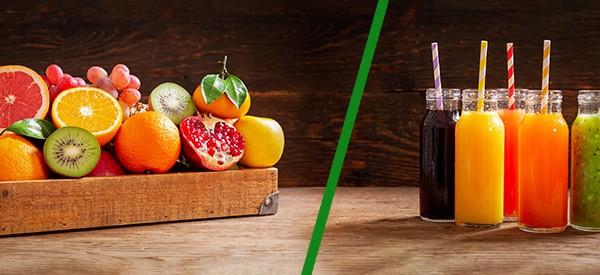
Fruit Juice vs. Whole Fruit. Which One is Better?
There is nothing better than having fruit juice to accompany your breakfast every morning; it certainly is one of the little sweet pleasures in life!
Of course, we appreciate the fruits we juice as a whole, too, as, without these, we would not have the juices to consume.
One of the most significant questions we face regarding the whole fruit versus the juice of the same fruit is which one is better for you in the short and long term.
Fruit Juice – Why Do We Drink It?
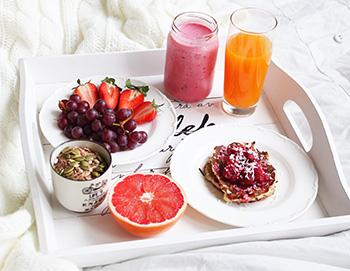 Fruit juice is something that is usually (but not always!) consumed in the morning either with or just before breakfast.
Fruit juice is something that is usually (but not always!) consumed in the morning either with or just before breakfast.
Juicing has been used for centuries to add nutrition and nutrients to your diet.
Some people might not want to eat their fruits and vegetables, but juicing might be the way they can get them into their bodies.
“Juicing” is a popular trend for those looking to better their health and lose weight. While some believe it’s better than eating whole fruits and vegetables, there’s not much evidence to support that.
Related: Ancient Japanese Tonic Melts 54 LBS Of Fat (Video)
So what are the overall benefits of drinking fruit juice?
As we all know, fruits contain many antioxidants within the flesh and exterior that you can consume and see that you are taking in the most protective elements for your health.
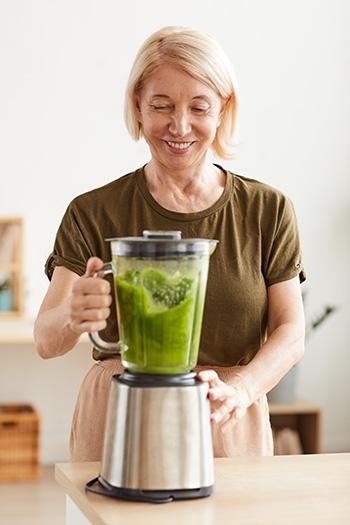 Juicing may:
Juicing may:
- Reduce your risk of cancer
- Boost your immune system
- Remove toxins from your body,
- Aid digestion
- Help you lose weight.
Pure fruit juice contains the juice extracted from the fruit under a pressurized mechanical movement, so the fruit will release not only the juice from the fruit inside the outer layer but also the oils from the outer layers. Of course, the best way to consume juice from the fruit is to blend rather than extract.
Suppose you’re looking for a way to up your intake of healthy phytonutrients, fiber, and vitamin C without consuming sugar or artificial ingredients. In that case, blending is the way to go.
This way, the whole edible parts of the fruit are used.
Are there any advantages to juice versus the whole fruit?
Of course, there are advantages to drinking fruit juice versus some other drinks in the morning.
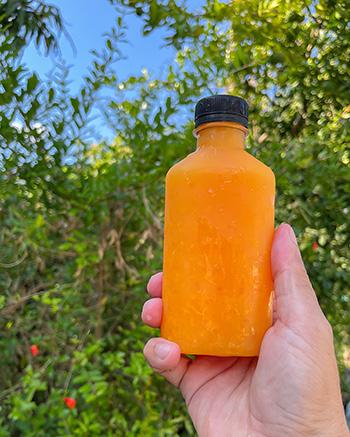
- 100% fruit juice is much healthier than juice drinks with added sugars, that’s for sure! A cup of it can count as a daily serving of fruit, and it contains many of the same vitamins, minerals, and compounds found in the whole fruit that the juice comes from.
- Fruit juice in the morning provides something with a sweet touch to drink and is incredibly convenient if you are off for a busy day.
- Juices can be more portable than taking stacks of fruit with you on your travels, so if convenience is the key for you, juices are the smart option to take if you are on the go.
Are there any disadvantages to juice versus the whole fruit?
When we look at fruit juice versus eating the whole fruit, we are looking at what happens if you choose the former over the latter.
- Fruit juices are delicious, but they’re not nearly as holistically healthy as consuming the whole fruit.
 People who eat whole fruit may have a much lower risk of heart disease, diabetes, and constipation.
People who eat whole fruit may have a much lower risk of heart disease, diabetes, and constipation.- Drinking juice can help you feel fuller longer, and that could be the key to controlling your weight. Juice will exit the stomach much faster than whole fruit will. Hence, it becomes less filling, but that also indicates that there is less fiber in juice versus the entire fruit.
- Sugar in fruit is natural sugar, but it’s become a little different in fruit juice.
 Juices don’t have the fiber in them that whole fruits have, so your body quickly absorbs the sugars. This can cause a significant spike in blood sugar levels and may cause an uncontrollable fluctuation as your blood sugar level rapidly rises and quickly falls.
Juices don’t have the fiber in them that whole fruits have, so your body quickly absorbs the sugars. This can cause a significant spike in blood sugar levels and may cause an uncontrollable fluctuation as your blood sugar level rapidly rises and quickly falls.
- Store-bought fruit juices are also loaded with sugar, which may lead to obesity and diabetes. For instance, A medium orange has 12 grams of sugars, but a cup of orange juice has 21 grams.
As you can see, although juices are a great alternative to artificially sweetened drinks and are superb to introduce a quick shot of vitamins and minerals into a busy day (and they taste good too!), they are not without their disadvantages.
Always use caution with portion sizes of juice and the frequency at which you drink them.
How can you make juices better for you?
Given everything we have said here, we can make some clever changes to our juices to make sure they are the very best they can be for our health, especially if you are not ready to lock them off your breakfast menu just yet (and we love them in moderation here!)
You can:
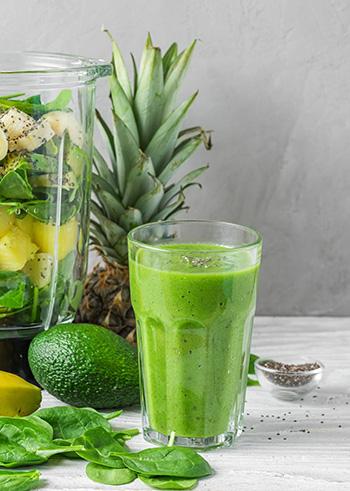
- Blend: Blending is much better than juicing as the juice retains the pulp and skin from the fruit, which introduces more fiber into the juice from the whole fruit.
- Include vegetables into the mix to add depth and diversity. Only use a small handful of each fruit you use, such as berries, a small banana, or a small apple.
- To mask the taste of vegetables, add the juice of half a lemon or a touch of apple cider vinegar to your blended fruit and vegetable juice which will make the overall juice taste sweeter without adding more fruit or sweeteners.
- Add in some healthy fats, such as chopped nuts or flaxseeds, to slow the absorption of the sugars and regulate the rate at which the sugars affect the body.
Related: 1 Cup Before Bed Shrinks Belly Fat All Night (Video)
Which fruits are best to juice?
With such a wide variety of fruits (and vegetables!) available to us, there will inevitably be some juices that are better for us over others, and some of the entries here might surprise you!
Let’s look at the healthiest juices you can make at home, and this is always the best way to make a juice to ensure there are no hidden nasties in the liquid you are consuming.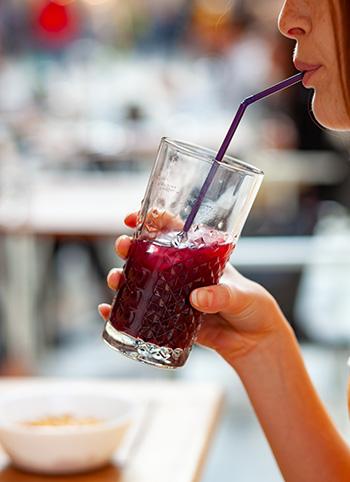
- Cranberry– high in antioxidants, and vitamins C and E, which may help protect your cells from damage caused by free radicals. Cranberry juice may also alleviate the symptoms and reduce the instances and frequency of urinary tract infections.
- Tomato juice- exceptionally high in vitamin C, which is a powerful antioxidant that supports the absorption of iron and promotes immune health. Yes, biologically, the tomato is a fruit!
 Beetroot– Beet juice is high in inorganic nitrates, a compound studied and shown to increase one’s athletic performance. This compound has also been shown to decrease blood pressure and lower the risk of heart disease.
Beetroot– Beet juice is high in inorganic nitrates, a compound studied and shown to increase one’s athletic performance. This compound has also been shown to decrease blood pressure and lower the risk of heart disease.- Apple- Potentially the second most common juice under orange juice, apple juice can be made in 2 different types, Cloudy apple juice (with pulp) and clear apple juice. Cloudy apple juice has a more significant amount of antioxidants per milliliter and may have up to 2–5 times the antioxidant content of clear apple juice.
- Prune- Prunes are the dried version of plums.
They are widely used as a natural remedy for constipation due to their higher fiber content, which may make compacted bowel movements easier to pass.
Conclusion
Overall, fruit juices are by no means bad at all, but they must be used with some precautionary measures due to their concentrated sugars.
Blended juices are better for you as they will contain more fiber than those juices that are just the liquid content; pulp and pith and skin are all great elements involved in your fruit juice.
You can balance the way your body uptakes the higher concentration of natural sugars in fruit juice by having the juice with a well-balanced meal, such as breakfast, or by adding vegetables, fats, and seeds into the juice to slow the absorption of sugars.
Everything in moderation is a saying we will use here, as juices are delicious and a fab way of grabbing so quick vitamins and minerals into your day.
You may also like:
DIY Colon Detox with Ingredients You Have in Your Kitchen Right Now
How To Make An Elderflower Probiotic (Video)
What Happens If you Drink Celery Juice for 30 Days?

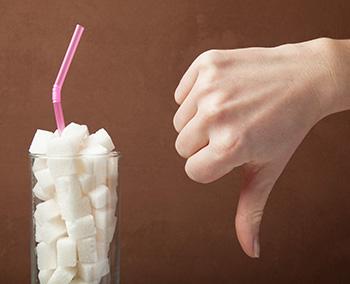 People who eat whole fruit may have a much lower risk of heart disease, diabetes, and constipation.
People who eat whole fruit may have a much lower risk of heart disease, diabetes, and constipation.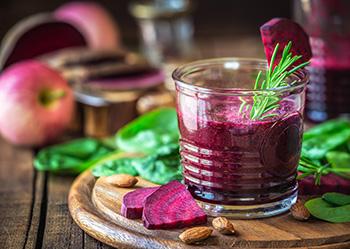

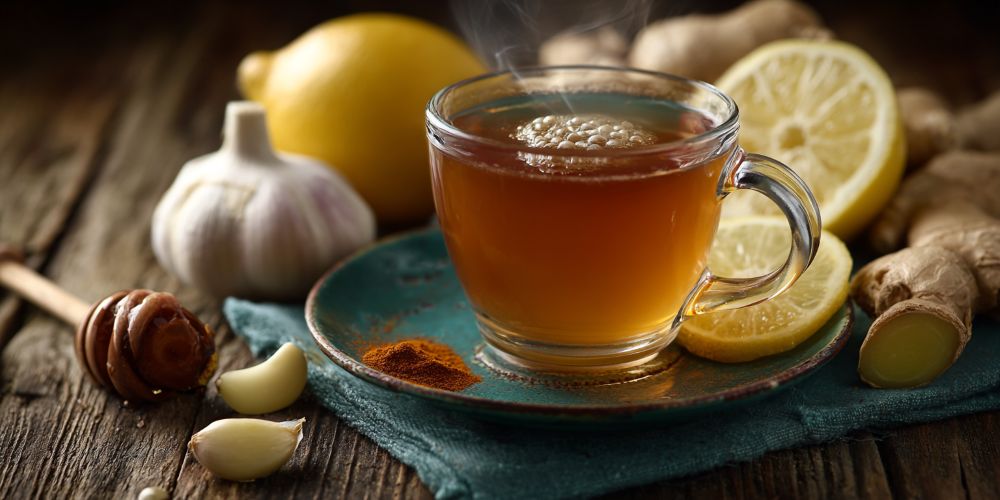
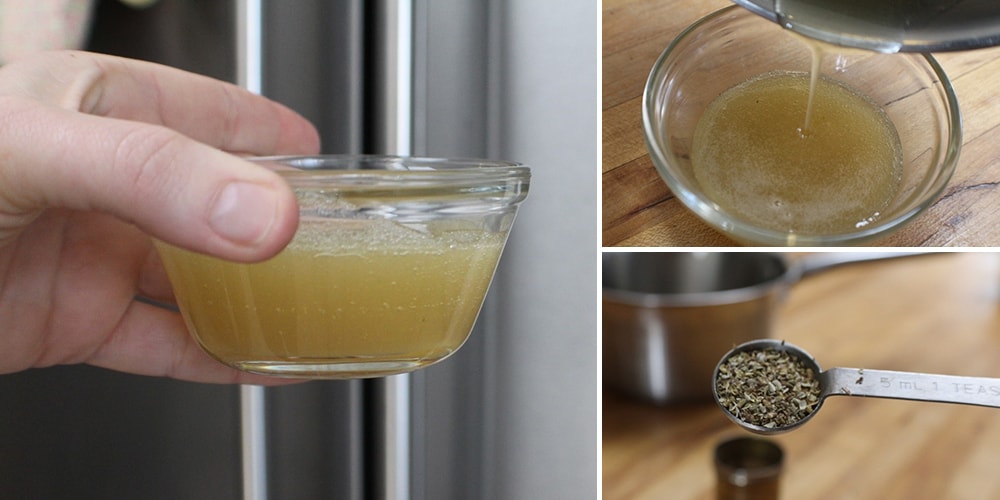

Great stuff!